Keywords: Aboriginal Spirituality
-
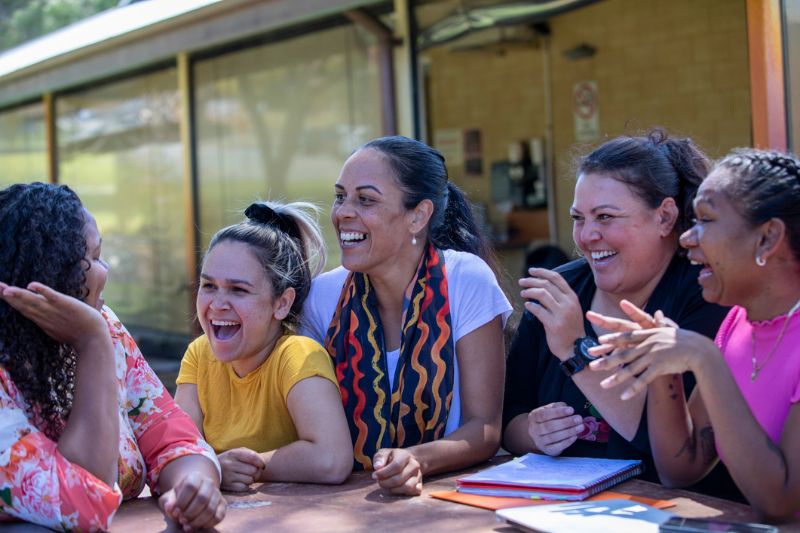
AUSTRALIA
- Andrew Hamilton
- 29 February 2024
In our more routine lives, most of us have people and groups whom we ignore, we instinctively look down on and we keep away from and people whose beliefs we scorn. We need to be attentive to the people who are commonly regarded as second-class citizens.
READ MORE
-
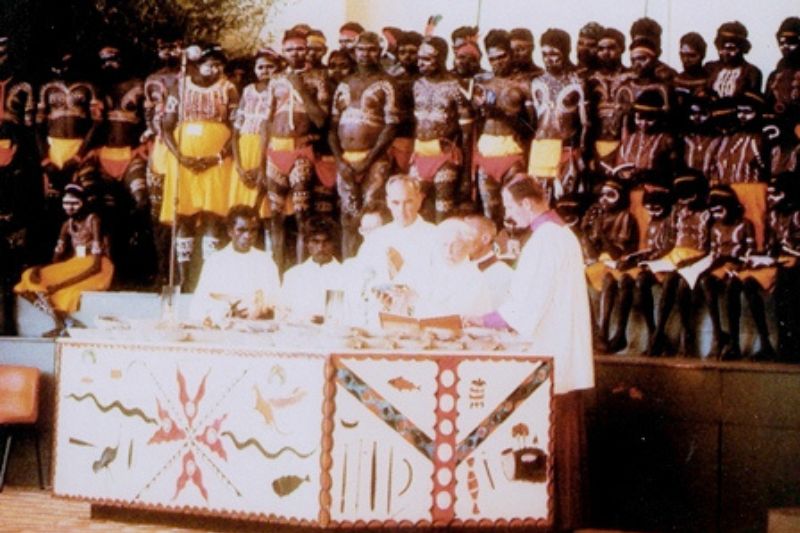
RELIGION
- Brian McCoy
- 11 January 2024
Fifty years ago, the Aboriginal Liturgy was the first attempt by the Catholic Church in Australia to re-shape the Mass, and was the first time we had witnessed and experienced Aboriginal people expressing their Catholic faith in ways that were culturally different from our own.
READ MORE
-
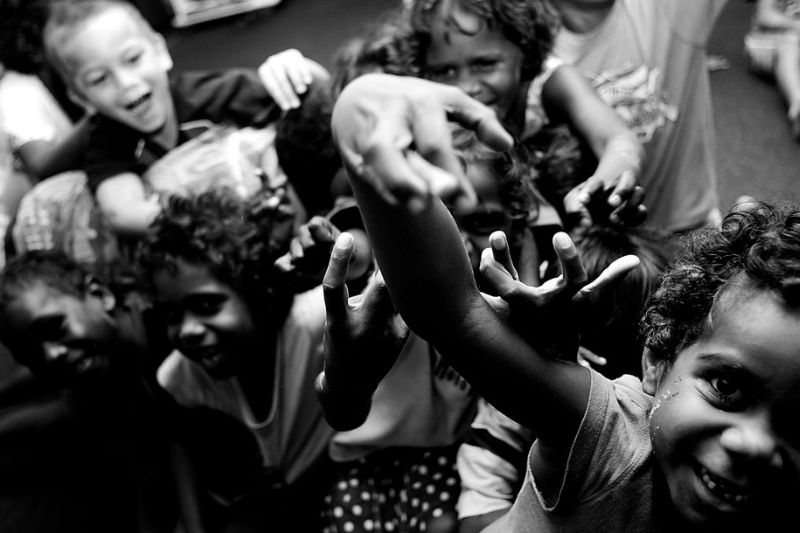
AUSTRALIA
- Brian McCoy
- 30 August 2023
16 Comments
The Kimberley region stands as a testament to both the enduring spirit of Australia's Aboriginal communities and the shadows of colonisation. As the Referendum looms, the potential for a united Voice beckons, inviting Australia towards a harmonious future.
READ MORE
-

ARTS AND CULTURE
- Paul Mitchell
- 23 June 2023
1 Comment
Renowned author and academic Tony Birch is known for his insightful and compelling narrative explorations into societal issues like marginalisation, Aboriginal identity and racial struggles. In conversation with Paul Mitchell, Birch discusses his work, the unique intersection of academia and creative writing, and the profound impact of historical dispossession.
READ MORE 
-
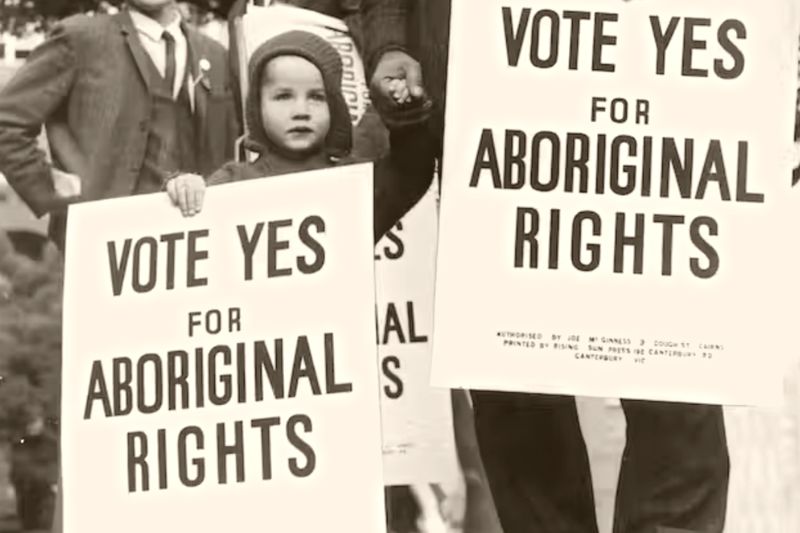
AUSTRALIA
- Frank Brennan
- 05 June 2023
19 Comments
The wording of the proposed change to the Australian Constitution to enshrine a First Nations Voice might not be perfect. But whatever the imperfections and the risk of future complications, it is high time that Australia’s First Peoples were recognised in the Constitution in a manner sought and approved by a broad cross-section of Indigenous leaders.
READ MORE
-
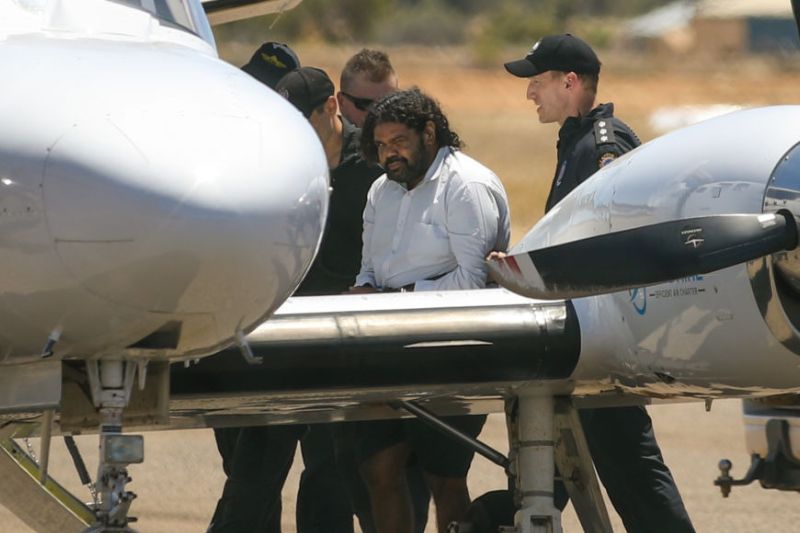
AUSTRALIA
- Brian McCoy
- 19 April 2023
13 Comments
Terence Darrell Kelly is not an isolated example of the intergenerational trauma that colonisation has brought to many Aboriginal and Torres Strait Islander people. As Australia grapples with the ongoing effects of colonisation, including the dispossession of land and culture, the need to listen to voices of Indigenous communities becomes increasingly urgent.
READ MORE
-

RELIGION
- Brian McCoy
- 20 February 2023
15 Comments
Fifty years ago, the Aboriginal Liturgy was the first attempt by the Catholic Church in Australia to re-shape the Mass, and was the first time we had witnessed and experienced Aboriginal people expressing their Catholic faith in ways that were culturally different from our own.
READ MORE
-
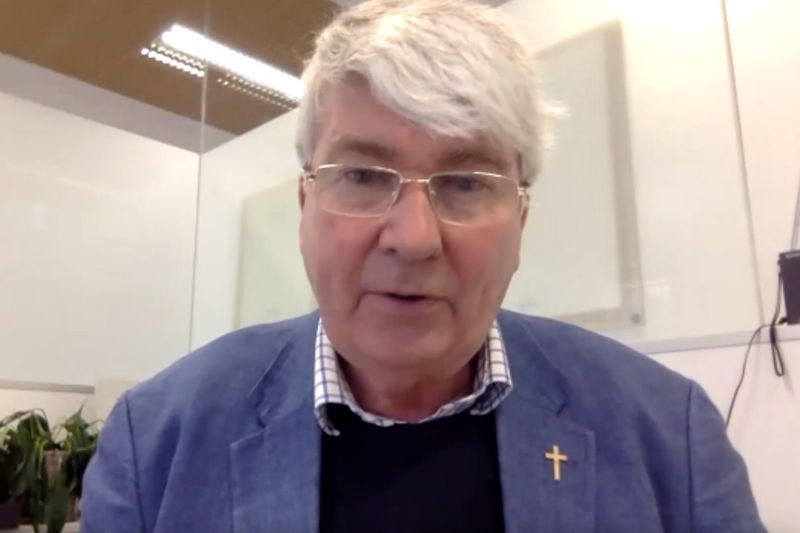
AUSTRALIA
- Frank Brennan, Vicki Clark
- 18 August 2022
3 Comments
How can individuals and organisations engage with and support progress on reconciliation? In this conversation, Fr Frank Brennan SJ (Rector, Newman College) and Vicki Clark touch on progress of reconciliation in Australia in light of the Uluru Statement from the Heart, Constitutional recognition of Aboriginal and Torres Strait Islander Peoples, the Yoorrook Justice Commission and the Victorian Treaty process.
READ MORE 
-
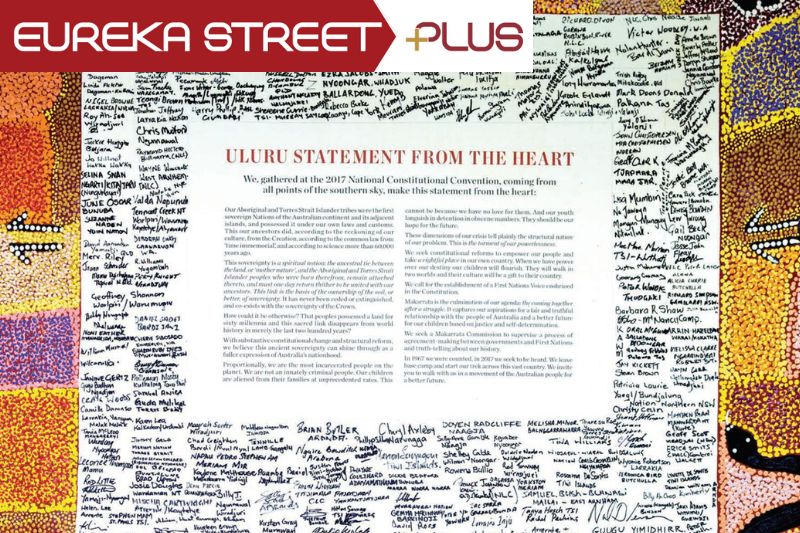
AUSTRALIA
- Frank Brennan
- 17 August 2022
2 Comments
We need to be able to do more than simply give notional assent to the Uluru Statement. We need to be able to contribute to the hard thinking and difficult discussions to be had if the overwhelming majority of our fellow Australians are to be convinced of the need for a Voice in the Constitution.
READ MORE 
-
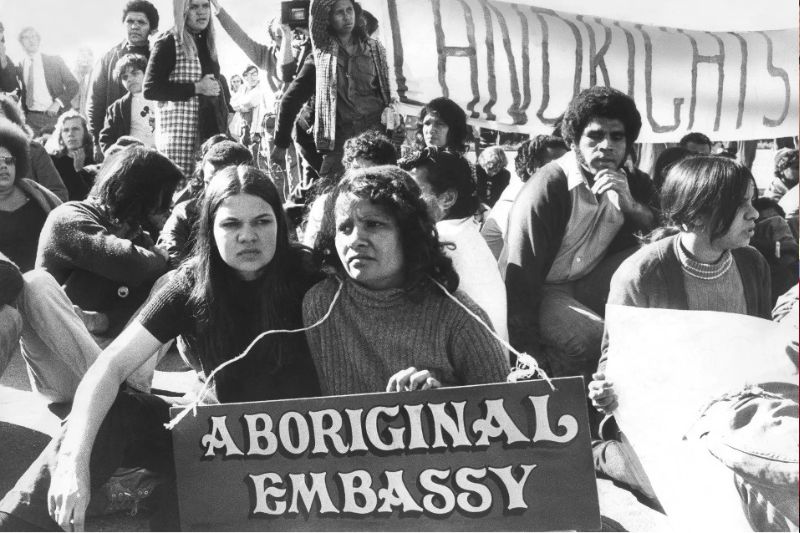
AUSTRALIA
The ‘Land Rights Now’ banner is hoisted against the wind, and the marchers set off for the Embassy. A young Aboriginal woman walks ahead of the banner. She has dyed her hair red. She turns and leans into the wind to face the marchers, holding a megaphone to her mouth. ‘What do we want?’ she shouts, ‘When do we want it?’ And she keeps going, exhorting the marchers. We reply ‘Land Rights … Now!’ The crowd tires before she does.
READ MORE 
-
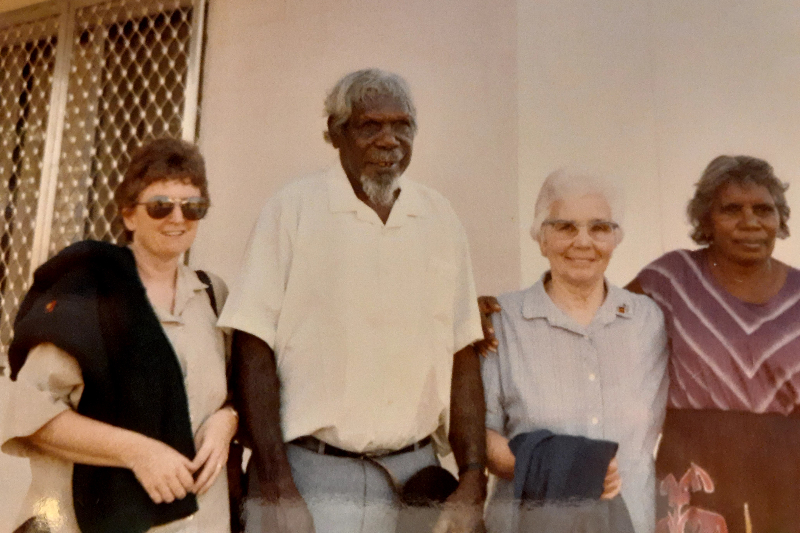
AUSTRALIA
- Paul Cleary
- 21 September 2021
1 Comment
In the late 1970s, two Mercy sisters answered a call to work with Aboriginal people, and they chose a place in the Pilbara region of Western Australia that had a notorious reputation. Sisters Bernadette Kennedy and Bernadine Daly arrived in the largely Aboriginal town of Roebourne in Australia’s north-west in mid-1978 to see if they were needed. They quickly discovered that in a town ‘awash with alcohol’ there was great need.
READ MORE 
-
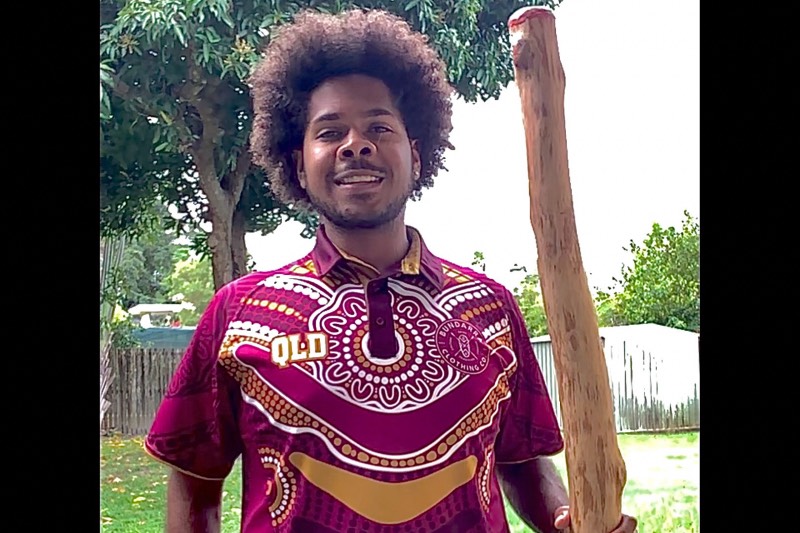
FAITH DOING JUSTICE
The question of reconciliation in the Church is particularly pressing, given 2021 marks the 250th anniversary of the arrival of Christianity in Australia, and the 150th anniversary of the arrival of Christianity to the Torres Strait. Yet many First Australians recognise that the Spirit of God was poured out onto the original inhabitants of this great Southern Land many, many thousands of years prior.
READ MORE 